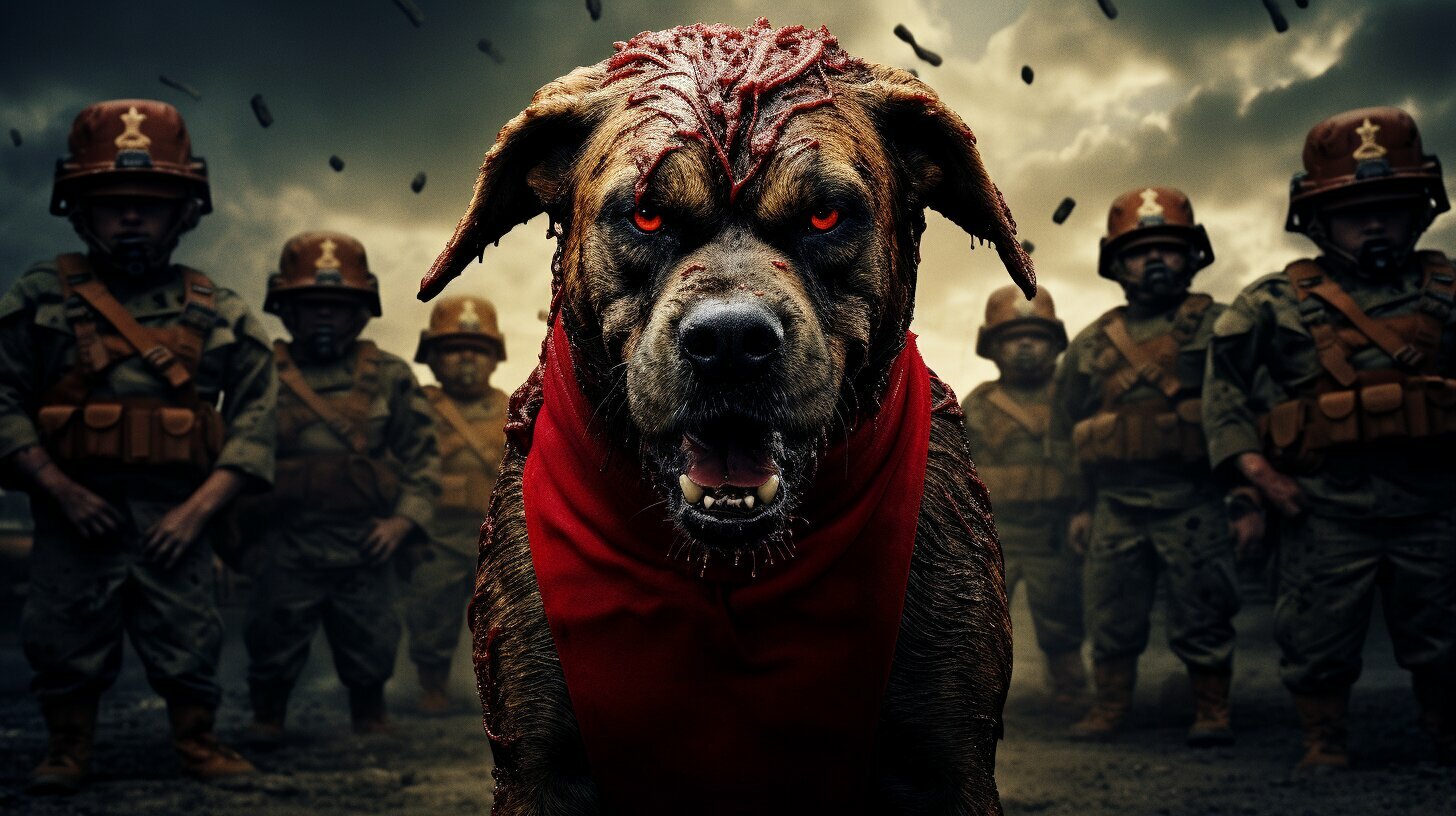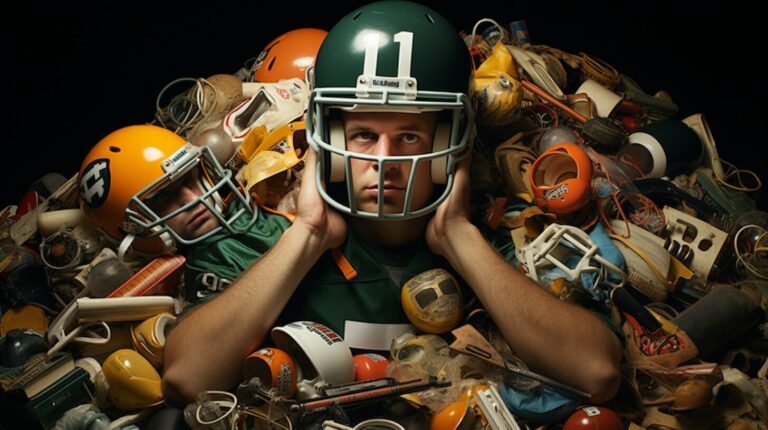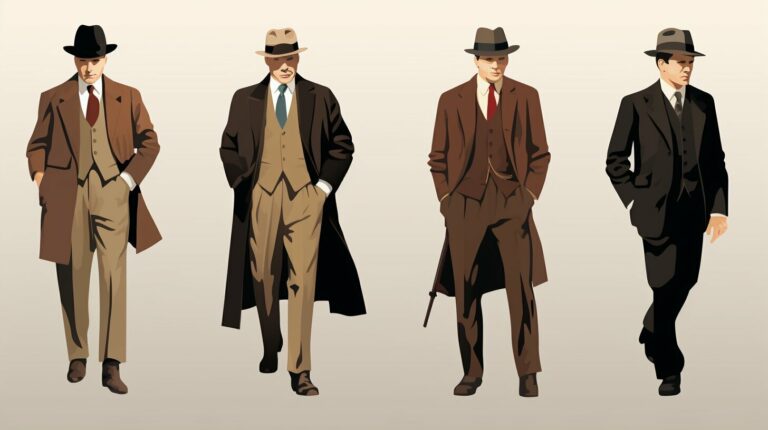Decoding the Grit: Why are Marines called Devil Dogs?
Have you ever wondered why Marines are called Devil Dogs? This iconic nickname has become synonymous with the Marine Corps, evoking images of strength, resilience, and fearlessness. In this article, we’ll dive into the origins of the Devil Dog nickname, its historical significance, and the ongoing debates surrounding its authenticity.
Key Takeaways:
- The Devil Dog nickname originated from the Battle of Belleau Wood in World War I, where German soldiers referred to Marines as “Teufel Hunden.”
- The Marines earned this nickname due to their ferocious and determined attack on a German-occupied hill, which led the Germans to compare them to “dogs from hell.”
- Major John Arthur Hughes, known as “Johnny the Hard,” played a significant role in solidifying the Devil Dog nickname.
- There is ongoing debate among historians about the true origin of the Devil Dog nickname, with some suggesting that it may have been invented by an American war correspondent.
- The German spelling of Devil Dogs is “Teufelshunde,” but variations in spelling and capitalization are common.
The Origin of the Devil Dog Nickname
The Devil Dog nickname has its roots in the historic Battle of Belleau Wood. This fierce battle took place during World War I, when the United States Marine Corps faced off against German troops in the French countryside. The Marines were tasked with capturing a strategic hill, which was heavily fortified by the enemy.
Under intense enemy fire and wearing gas masks due to the presence of mustard gas, the Marines launched a determined assault on the hill. Their relentless attack, characterized by their sweat-drenched uniforms, foaming at the mouth, and bloodshot eyes, caught the attention of the German soldiers. In their eyes, the Marines resembled ferocious dogs from hell, and they began referring to them as “Teufel Hunden,” which translates to “Devil Dogs” in English.
The nickname quickly spread among the Marine Corps, and it became a source of pride and honor for those who served. The Devil Dog legacy symbolizes the Marines’ unwavering courage, tenacity, and indomitable spirit in the face of adversity. It is a testament to their willingness to face any challenge head-on and emerge victorious.
| Key Points: |
|---|
| The nickname originated from the Battle of Belleau Wood in World War I. |
| German soldiers referred to the Marines as “Teufel Hunden,” meaning “Devil Dogs.” |
| The Marines’ ferocity and determination in battle led to the comparison. |
| The Devil Dog nickname embodies the Marine Corps’ fearlessness and resilience. |
Teufel Hunden: The German Connection
The German soldiers dubbed the Marines as “Teufel Hunden” during the Battle of Belleau Wood. This nickname, which translates to “Devil Dogs” in English, was inspired by the Marines’ relentless and ferocious attack on the German lines. It was during this battle that the Marines displayed their exceptional bravery and determination, earning the respect and fear of their enemies.
The Battle of Belleau Wood was a pivotal moment in World War I, as the Marines were tasked with capturing a heavily fortified hill that was occupied by the Germans. The Marines faced many challenges, including the use of chemical weapons, but their unwavering spirit and unwavering resolve propelled them forward. As they fought their way up the hill, the Marines appeared to be sweating profusely, foaming at the mouth, and their eyes bloodshot from the effects of the gas masks they were wearing. This image of soldiers who seemed otherworldly in their determination and fearlessness prompted the German soldiers to compare them to “dogs from hell.”
“Teufel Hunden,” the German soldiers would say, in awe of the Marines’ tenacity and resilience. This nickname was a testament to the Marines’ unwavering courage and their ability to overcome seemingly insurmountable odds.
Since then, the Devil Dog nickname has become an important part of Marine Corps culture and identity. It symbolizes the Marines’ dedication, toughness, and indomitable spirit. The legacy of the Devil Dogs lives on in the stories of their heroic actions and in the unwavering commitment of today’s Marines to uphold the values and traditions of their predecessors.
| Key Points: |
|---|
| The Marines were called “Teufel Hunden” by German soldiers during the Battle of Belleau Wood |
| The nickname “Devil Dogs” originated from the Marines’ fierce and tenacious attack |
| The Marines’ relentless determination and fearlessness led the Germans to compare them to “dogs from hell” |
| The Devil Dog nickname has since become ingrained in Marine Corps culture and symbolizes their toughness and indomitable spirit |
The Fierce Spirit of the Devil Dogs
The Devil Dog nickname carries a significant meaning for Marines, embodying their fearless and unyielding spirit. It is a symbol of their unwavering determination, loyalty, and resilience in the face of adversity. The Marines’ reputation as Devil Dogs is rooted in their storied history and the courage they displayed during the Battle of Belleau Wood in World War I.
“Sweating like dogs, with tongues hanging out, they fought their way forward with indomitable courage and persistence, never retreating or surrendering,” said General Pershing, reflecting on the Marines’ relentless assault.
This ferocious spirit, likened to dogs from hell, earned them the nickname “Teufel Hunden” from the German soldiers they faced on the battlefield. The Marines’ determination to seize and hold the hill, even while wearing gas masks, left an indelible mark on their adversaries. Their sweat-soaked uniforms, foam-covered mouths, and bloodshot eyes further cemented the comparison.
Major John Arthur Hughes, known as “Johnny the Hard,” played a pivotal role in solidifying the Devil Dog legacy. As the commander of the Marines during the Battle of Belleau Wood, his leadership and bravery inspired his troops to push forward despite overwhelming odds. The Marines’ relentless assault, combined with their unyielding spirit, resulted in a hard-fought victory that forever solidified their reputation as Devil Dogs.
The Legend Lives On
The Devil Dog nickname continues to hold great significance for Marines to this day. It serves as a reminder of the fierce spirit that has guided them through countless battles and challenges. The Devil Dog legacy embodies the core values of the Marine Corps, including honor, courage, and commitment.
While there is some debate about the precise origin of the Devil Dog nickname, its enduring impact on the Marine Corps cannot be denied. Whether it was coined by German soldiers or invented by an American war correspondent, the moniker has become an integral part of Marine Corps culture and identity.
As Marines continue to embody the fearless and unyielding spirit of the Devil Dogs, they honor the legacy of those who came before them. The Devil Dog nickname serves as a symbol of their unwavering dedication to duty, their brothers and sisters in arms, and the preservation of freedom.
| Facts About Devil Dogs |
|---|
| The Devil Dog nickname originated from the Battle of Belleau Wood in World War I. |
| German soldiers referred to Marines as “Teufel Hunden” due to their fierce fighting spirit. |
| Major John Arthur Hughes, known as “Johnny the Hard,” played a major role in solidifying the Devil Dog legacy. |
| The Devil Dog nickname represents the fearless and unyielding spirit of Marines. |
Major John Arthur Hughes: “Johnny the Hard”
Major John Arthur Hughes, also known as “Johnny the Hard,” played a crucial role in the Marine Corps’ Devil Dog legacy. He was the commanding officer of the 1st Battalion, 6th Marines during the intense Battle of Belleau Wood in World War I. Under his leadership, the Marines displayed unparalleled bravery and determination, earning the admiration of their allies and the respect of their enemies.
The nickname “Johnny the Hard” was not only a testament to Major Hughes’ unwavering toughness but also served as a rallying cry for his battalion. His no-nonsense approach and indomitable spirit inspired his men to push beyond their limits and achieve incredible feats on the battlefield.
“Johnny the Hard” and his Marines fought ferociously against a well-entrenched German force, enduring heavy casualties and unrelenting enemy fire. The unfathomable sacrifices made by Major Hughes and his troops during the Battle of Belleau Wood solidified their reputation as the Devil Dogs of the Marine Corps.
To this day, Major John Arthur Hughes is remembered as a true Marine Corps legend, a symbol of valor and leadership. His unwavering courage and dedication continue to inspire new generations of Marines, ensuring that the Devil Dog legacy lives on.
| Key Points | Details |
|---|---|
| Nickname | “Johnny the Hard” |
| Role | Commanding officer of the 1st Battalion, 6th Marines |
| Battle | Battle of Belleau Wood in World War I |
| Legacy | A true Marine Corps legend, symbol of valor and leadership |
The Debate: Invention or Authenticity?
While the Devil Dog nickname is widely accepted, there is some debate about its true origin. Historians have offered various theories, adding an air of mystery to this intriguing moniker. Was it a term coined by an American war correspondent, or does it truly have its roots in the Battle of Belleau Wood? Let’s explore the arguments and unravel the enigma.
On one side of the debate, proponents argue that the Devil Dog nickname was invented by an American journalist. They claim that it was a fictional creation meant to portray the Marines’ ferocity and amplify their heroic image. According to this theory, the nickname gained popularity through its usage in newspapers and magazines, eventually becoming ingrained in Marine Corps folklore.
However, those who support the authenticity of the nickname bring forth evidence linking its origin to the Battle of Belleau Wood. They highlight the accounts of German soldiers who referred to the Marines as “Teufel Hunden,” meaning “Devil Dogs” in German. These soldiers witnessed firsthand the Marines’ relentless assault, their unwavering determination, and their refusal to retreat. To the Germans, the Marines seemed like supernatural creatures, embodying the relentless fury of hell’s hounds.
| Invention Theory | Authenticity Theory |
|---|---|
| Coined by an American war correspondent | Originated from German soldiers’ admiration |
| Popularized through media | Evidence from the Battle of Belleau Wood |
| Enhanced Marine Corps’ heroic image | Reflects the Marines’ tenacity and bravery |
As with many historical debates, the true answer may forever elude us. However, what remains undeniable is the fierce spirit and indomitable reputation that the Devil Dog nickname conjures. Whether born from the imagination of a wordsmith or inspired by the awe-inspiring actions of Marines, this nickname has become an integral part of Marine Corps history and tradition.
The Spelling Controversy: Teufelshunde or Devil Dogs?
The Devil Dog nickname has different spellings, but its meaning remains the same for the Marine Corps. The term “Devil Dog” originated from the Battle of Belleau Wood in World War I, where German soldiers referred to Marines as “Teufel Hunden” or “dogs from hell.” This fierce and tenacious reputation stuck with the Marines and has become an integral part of their identity.
While the German spelling of Devil Dog is “Teufelshunde,” variations in spelling and capitalization are common when referencing the nickname. Some sources use “Devil Dogs,” with the words capitalized, while others prefer “devil dogs” in lowercase. The choice of spelling often depends on personal preference or editorial style.
What matters most is the symbolic meaning behind the nickname. For the Marine Corps, being called Devil Dogs symbolizes their fearlessness, loyalty, and resilience. It represents their unwavering commitment to protecting and defending their country.
The Devil Dog Legacy
Throughout Marine Corps history, the Devil Dog legacy has been embraced by countless Marines who embody the traits associated with the nickname. These brave men and women have faced countless challenges with unwavering determination, always pushing through adversity and never backing down.
Notable Marines like Major John Arthur Hughes, also known as “Johnny the Hard,” exemplify the spirit of the Devil Dogs. Major Hughes commanded the Marines during the Battle of Belleau Wood and played a significant role in solidifying the Devil Dog nickname. His leadership and the bravery of his battalion, known as “1/6 Hard,” left an indelible mark on Marine Corps history.
In conclusion, the spelling of the Devil Dog nickname may vary, but its meaning remains constant within the Marine Corps. It represents the courageous and unwavering spirit of the Marines, who embody the traits of fearlessness, loyalty, and resilience. The Devil Dog nickname is a testament to the indomitable fighting spirit of the Marine Corps, and it will continue to be honored and embraced by Marines for generations to come.
| Devil Dog Nickname | Spelling |
|---|---|
| English | Devil Dogs |
| German | Teufelshunde |
Conclusion
The Devil Dog nickname holds a significant place in Marine Corps history, symbolizing the indomitable spirit of these brave warriors. From the trenches of the Battle of Belleau Wood to the present day, the Marines have embodied the qualities of fearlessness, loyalty, and resilience that are associated with the Devil Dog legacy.
One of the key figures in solidifying the Devil Dog nickname was Major John Arthur Hughes, also known as “Johnny the Hard.” As the commander of the Marines during the Battle of Belleau Wood, Hughes led his battalion with unwavering determination, inspiring his troops to push forward in the face of extreme adversity.
While the origins of the Devil Dog nickname are rooted in the Battle of Belleau Wood, there is some debate among historians about its authenticity. Some suggest that the nickname may have been invented by an American war correspondent, further adding to the mystique surrounding its origin.
Additionally, variations in spelling and capitalization of the Devil Dog nickname have been observed over time. The German spelling, “Teufelshunde,” adds an interesting historical connection to the Marines’ German counterparts, who referred to them as “Teufel Hunden” during World War I.
Whether it was born out of the fervor of battle or the creativity of a journalist’s pen, the Devil Dog nickname has become entrenched in Marine Corps lore. It serves as a constant reminder of the Marines’ unwavering courage and unwavering dedication to their mission. Throughout Marine Corps history, many famous “Devil Dogs” have emerged, embodying the fierce spirit and determination that defines the Marine Corps as the few and the proud.
FAQ
Why are Marines called Devil Dogs?
Marines are called Devil Dogs due to their fierce and tenacious reputation, which originated from the Battle of Belleau Wood in World War I. German soldiers called them “Teufel Hunden,” meaning “dogs from hell,” after witnessing their relentless attack and unwavering bravery.
What is the origin of the Devil Dog nickname?
The Devil Dog nickname originated during the Battle of Belleau Wood in World War I. The Marines’ relentless assault on a hill occupied by Germans while wearing gas masks impressed the enemy, who compared them to “dogs from hell.” This nickname stuck and became an integral part of Marine Corps lore.
How did the Germans contribute to the Devil Dog nickname?
The Germans referred to the Marines as “Teufel Hunden,” which translates to “Devil Dogs” in English. The Marines’ fierce and tenacious attack, characterized by sweating profusely, foaming at the mouth, and bloodshot eyes, led the Germans to associate them with ferocious and relentless dogs from hell.
What does the Devil Dog nickname symbolize for Marines?
The Devil Dog nickname symbolizes the traits of fearlessness, loyalty, and resilience that are deeply ingrained in the Marine Corps. It represents the indomitable spirit and unwavering determination that Marines carry with them in the face of adversity.
Who was Major John Arthur Hughes and how did he contribute to the Devil Dog legacy?
Major John Arthur Hughes, also known as “Johnny the Hard,” was the commander of the Marines during the Battle of Belleau Wood. His leadership and the Marines’ relentless assault solidified the Devil Dog nickname. Major Hughes played a significant role in shaping the Marine Corps’ identity and legacy.
Is there any debate about the authenticity of the Devil Dog nickname?
Some historians question the true origin of the Devil Dog nickname, suggesting it may have been invented by an American war correspondent. While the Battle of Belleau Wood and the German influence are widely accepted, the exact origin of the nickname remains a topic of debate and speculation.
How is the Devil Dog nickname spelled and capitalized?
The German spelling of Devil Dogs is “Teufelshunde,” but variations in spelling and capitalization are common. The English spelling, “Devil Dogs,” is widely used and recognized, reflecting the Marine Corps’ historical connection to the nickname.
What is the significance of the Devil Dog nickname in Marine Corps history?
The Devil Dog nickname holds great significance in Marine Corps history. It represents the courage, tenacity, and unwavering spirit of Marines throughout the years. The legacy of the Devil Dogs continues to inspire and honor the brave men and women who serve in the United States Marine Corps.






